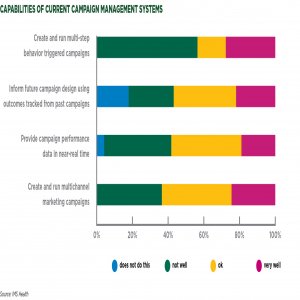Bringing Phase I Studies to Mexico

STORY INLINE POST
Q: What role does Mexico play in ICON’s global strategy?
A: ICON is a multinational company from Ireland that opened its Mexico office in 2004 and is now the largest in the region. We have two hubs in Mexico, one for commercialization and another for medical safety. The latter now incorporates about 30 people and provides services to Latin America, Europe, and the US during Phases II and III including postcommercialization studies and regulations. The FDA is highly interested in results from our Mexican offices, as Hispanics are one of the largest minorities in the US and it is easier to capture patient data in Mexico than in the US.
Q: In what ways can CROs differentiate themselves as the marketplace becomes more competitive?
A: We are heavily investing in technology and recently launched eConsent (eIC) which was developed using insight provided by research from Carnegie Mellon University. This is built on our Firecrest technology platform that enhances study performance by delivering a range of tools, services, applications and solutions for more effective investigatorpatient engagement, leading to better study management. We are providing this service for all our clinical studies and other companies are hiring us based on that system, even those that are conducting their own clinical trials but want to incorporate our Education Technology Platform.
Q: How much work is there actually right now for CROs?
A: At this point 60% of clinical trials in Mexico are conducted by CROs and ICON is one of the top five companies in this area in terms of size, projects, and revenue. Pharmaceutical industries see us as partners and trust us to provide insight into clinical development and conduct whole programs, not just single studies. We support our clients in early phase studies by helping them to determine which molecules are most promising using technology that can predict to a certain extent the functionality of a molecule. We are also starting to conduct bioequivalence studies and we have trials specific to vaccines that are new to Mexico’s national health system.
Q: What are the main trends being seen in the clinical trials industry driving ICON’s growth?
A: At this point biosimilar studies are more common than generics. The number of small molecule studies has reduced as larger molecules, which involve complex protocols and study designs, are replacing them. These studies are harder to manage as they involve different tests and information than regulators are accustomed to. Another emerging area is clinical trials for medical devices. ICON and other CROs are also starting to bring Phase I studies to Mexico, which are scarce due to a lack of experience conducting these studies, making international companies reluctant to bring them into the country. The country has many strategic advantages in terms of attracting these studies such as lower costs and highly qualified professionals.
Q: In your opinion, does Mexico have the correct regulatory environment for clinical trials?
A: We do not yet have the appropriate regulation but COFEPRIS is working on modernizing the system. It is important for us to communicate the knowledge that we have gained over the years and to implement the necessary reforms in order to be able to compete with other countries in Latin America. COFEPRIS has implemented some novel efficiency strategies, such as the High Productivity Group (GAP), which was in charge of reviewing all the pending submissions last year. Also implemented was the Enabled Units for Pre-judgement Support (UHAP), a group made up of nine national institutes that are supporting COFEPRIS in its pre-approval process. COFEPRIS also received international recognition last year from the WHO as an approved Regulatory Agency in Vaccines as well as PAHO endorsement after their inspection. We need to build on this recognition, and while this will be a relatively slow process, eventually COFEPRIS will be recognized by the global industry.
Q: Is there a positive perception from patients of clinical trials in Mexico?
A: Patients used to have a negative perception of clinical trials, and we have been working to change this. An ongoing issue that discourages patients is that Mexican regulations prohibit their remuneration. We are only allowed to pay healthy volunteers and then only a small stipend that cannot qualify as a salary, so there is a need to focus on other benefits we can deliver to participants such as access to high level medical attention and to novel study drugs or devices.























